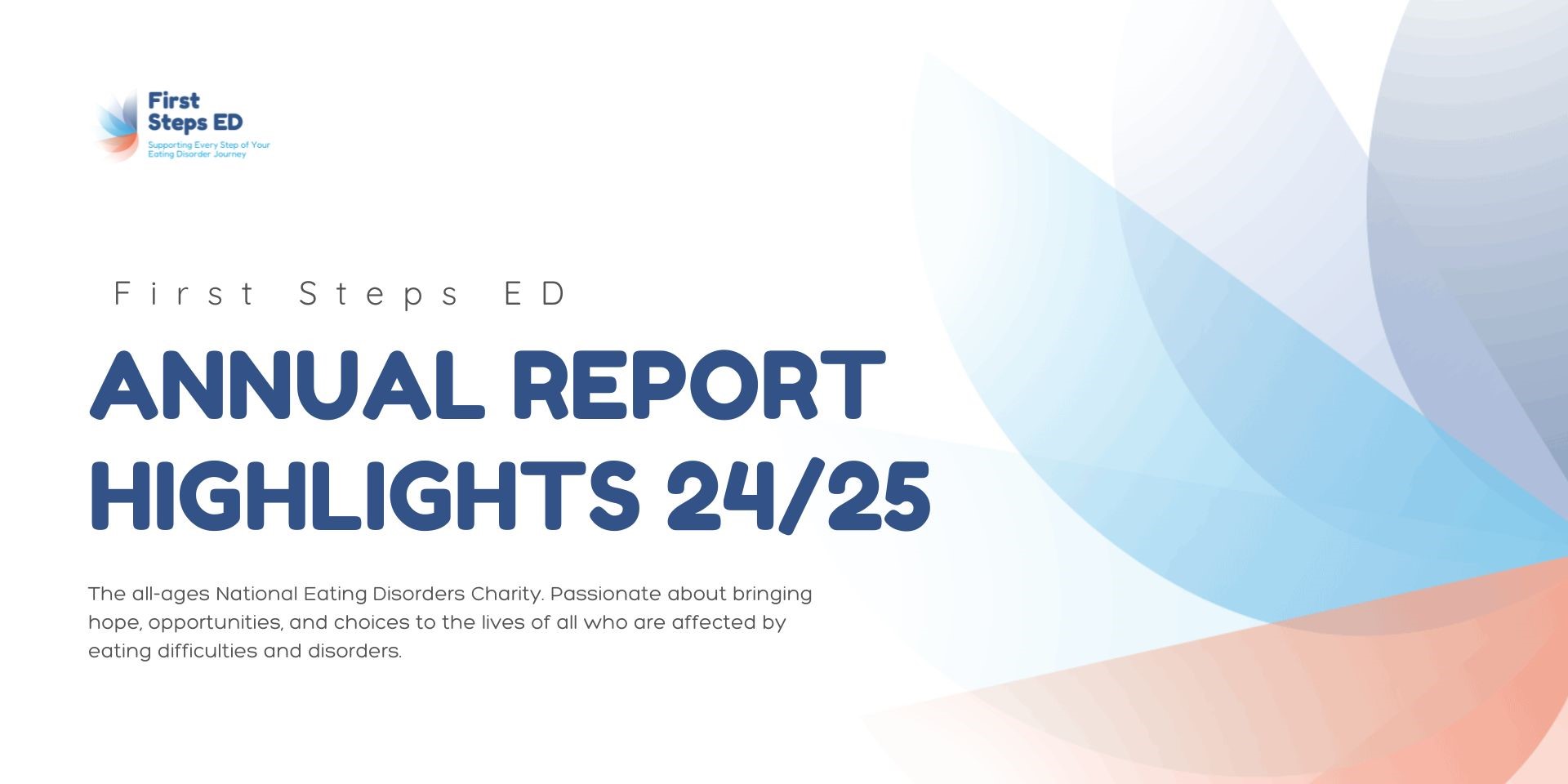Friday 31st October 2025
First Steps ED has reported a significant surge in demand for eating disorder support services, with referrals increasing by 32% in the past year – more than three times the growth rate seen in the previous year.
The Derby-based charity’s latest annual report for 2024/25 shows they received 1,339 adult referrals, representing a 57% increase compared with 852 referrals the previous year. This sharp rise in adult cases has been the main reason behind the overall growth in service demand.
The charity’s annual figures also support national data to show the substantial overlap between neurodivergent conditions and eating disorders. Data gathered by First Steps ED for the first time shows that 35.9% of service users are neurodivergent, highlighting the critical importance of tailored support for this population. Current research estimates between 4 – 23% of people with eating disorders also have autism[1].
Holly Whitehead, All Ages Services Director at First Steps ED, said: “The increase in referrals we’re seeing reflect a few factors – our success in expanding our contracts nationally and increased awareness of our charity, but also a worrying increase in demand for eating disorder support, which have all contributed to our referrals increasing.
“The 32% increase in referrals – up from 10% last year – demonstrates that more people than ever are seeking help for eating disorders, and the rate of growth is accelerating. The rise in adult referrals and the significant proportion of our service users who are neurodivergent reinforce the need for specialist, informed support that recognises the complexity of eating disorders and their intersection with other conditions.”
Other key statistics from the report include:
- 20% of referrals are for male service users, although this group is still underrepresented, as 25% of those affected by eating disorders are male
- 32% of service users were from marginalised ethnic communities
- First Steps ED support led to:
- A 32% reduction in symptoms for people with avoidant/restrictive food intake disorder (ARFID) – which accounts for a quarter of all service users
- A 19% reduction in service users’ EDE-Ascore, which measures eating disorder behaviours and attitudes in those aged under 18
- A 15% reduction in service users’ EDE-Q score, which measures the severity of symptoms
- 865 private support sessions were delivered
The report’s publication coincides with a visit today (Friday) by local MPs Baggy Shanker (Derby South) and Catherine Atkinson (Derby North) to the First Steps ED offices in Derby. The MPs will hear from senior staff, meet the wider First Steps ED team and hear first-hand the impact the charity has had on service users.
Daniel Magson, CEO of First Steps ED, said: “These figures demonstrate the clear impact of our work, and I’m proud that our efforts in reaching out to marginalised communities – which were focused on South Asian communities last year – have encouraged people to come forward for support. But these statistics also remind us of the gaps that remain – particularly in reaching male service users, who still represent only 20% of referrals despite accounting for 25% of those affected. We’re committed to continuing to break down barriers to ensure everyone who needs help can access it, and to reach even more people who need support next year.”
Annual report factsheet
ENDS
For media enquiries, please contact First Steps ED’s Communications Consultant, Rachel Gonzaga, on 07918 590 166.
Notes to editors:
About First Steps ED
First Steps ED is a national eating disorder charity supporting people of all ages, genders and backgrounds. In the field of eating disorders, we offer the widest range of high-quality care focused on the needs of the individual. The services include psychotherapy, counselling, workshops, peer support and online tools for everyone impacted by eating disorders, including family and loved ones. https://firststepsed.co.uk/
[1] https://www.beateatingdisorders.org.uk/get-information-and-support/about-eating-disorders/eating-disorders-and-autism/

